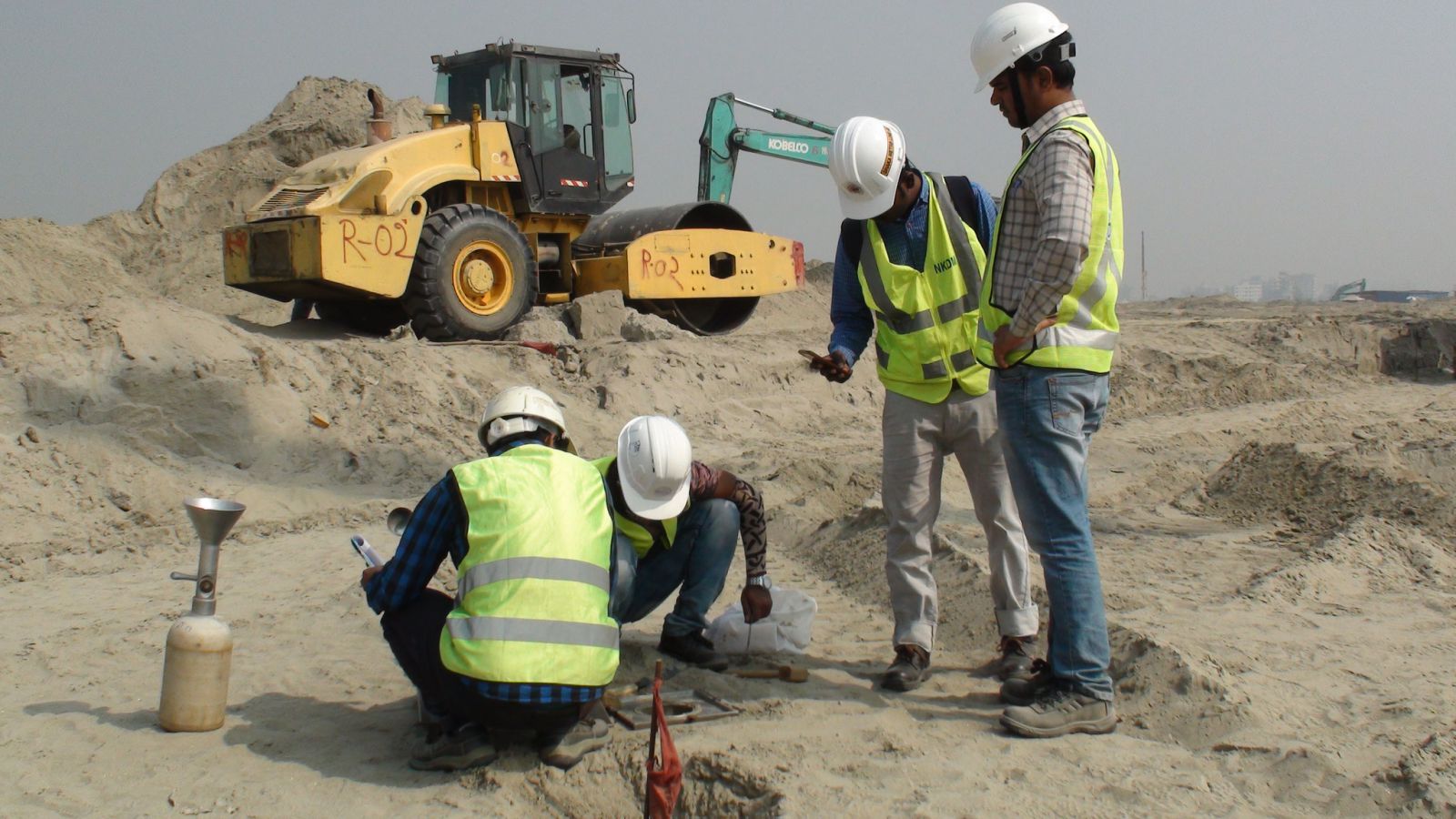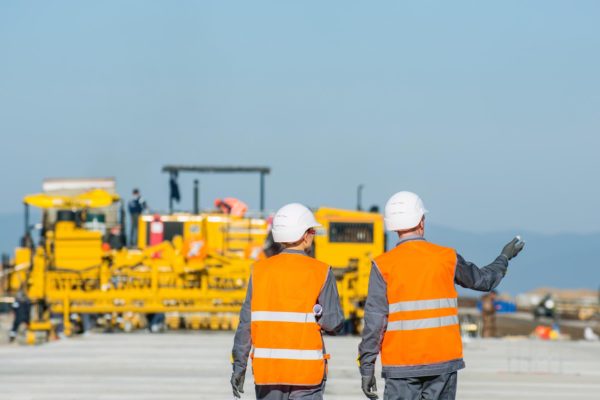Comprehending the Essential Duty of the Geotechnical Market in Modern Building And Construction Projects and Infrastructure Growth
The geotechnical sector is a cornerstone of modern building and construction and framework advancement, supplying crucial insights into dirt behavior that directly influence job results. Through sophisticated soil evaluations and ingenious engineering services, geotechnical experts not only make sure structural honesty yet additionally address sustainability problems amid progressing ecological requirements.
Value of Dirt Evaluation
Soil assessment plays an essential duty in the geotechnical industry, functioning as the structure for educated decision-making in construction jobs. Accurate soil evaluation is vital for determining the suitability of a website for numerous kinds of frameworks, including household homes, business structures, and bridges. By evaluating soil composition, wetness, stamina, and density web content, designers can expect possible challenges and minimize threats related to ground instability, disintegration, and settlement.
The assessment procedure generally involves a collection of tests and observations that provide essential info about the subsurface problems. This data educates the style and construction procedures, making sure that frameworks are improved strong ground with sufficient assistance. Furthermore, recognizing the soil account allows engineers to choose ideal building methods and products, optimizing source utilization and decreasing expenses.
In enhancement to making sure structural integrity, dirt evaluation contributes to environmental sustainability. By determining possible contamination or unfavorable effects on surrounding ecosystems, engineers can implement approaches to protect these natural deposits. In general, complete soil assessment is important in the geotechnical area, underpinning the safety and security, effectiveness, and ecological duty of building and construction tasks.
Secret Geotechnical Methods
A selection of vital geotechnical techniques are used to enhance the security and evaluate and performance of construction sites. One foundational approach is dirt tasting and screening, which enables engineers to determine the physical and chemical buildings of the ground. This details is important for making informed decisions regarding structure layout and building and construction approaches.
One more necessary method is site characterization, which includes the comprehensive assessment of soil and rock problems via methods such as borehole drilling and in-situ screening. Methods like Requirement Penetration Tests (SPT) and Cone Infiltration Examinations (CPT) offer important information on dirt toughness and stratigraphy.
Ground improvement strategies, such as dirt stabilization and grouting, are also crucial in improving the load-bearing capability of weak soils. These approaches can reduce negotiation and enhance overall site conditions.
In addition, incline stability evaluation is essential for determining potential landslide threats and guaranteeing the safety of excavations. This analysis frequently uses numerical modeling and restriction balance techniques to predict dirt behavior under numerous problems.
Incorporating these geotechnical methods right into building planning not only enhances project results but also makes sure the long-term sustainability of framework growth.
Influence On Construction Security

Additionally, effective geotechnical engineering involves implementing mitigation strategies for determined risks. This may include soil stablizing techniques, maintaining structures, or water drainage systems to minimize hydrostatic stress. By addressing these elements, construction teams can minimize the likelihood of mishaps and enhance employee safety.
Furthermore, continual surveillance of website conditions is essential throughout construction. Geotechnical instruments can give real-time data relating to ground activity and stability, allowing for prompt interventions when required.
Fundamentally, the geotechnical sector plays a crucial role in safeguarding construction projects. By prioritizing ground integrity and utilizing rigorous assessment methods, the geotechnical industry not only shields the workforce however likewise adds to the durability and integrity of constructed infrastructure.
Sustainability in Geotechnical Practices

Moreover, geotechnical engineers are now employing innovative technologies, such as geosynthetics, which enhance dirt security while lowering the quantity of product needed. This not only saves resources but likewise leads to less waste generation (consulting engineer). The combination of lasting design concepts right into geotechnical engineering encourages using eco-friendly power sources in construction processes, even more reducing carbon exhausts
In addition, complete website assessments are necessary for determining potential ecological see here now effects before construction starts. By conducting these evaluations, geotechnical professionals can establish methods that reduce negative effects, ensuring compliance with ecological guidelines. Overall, the focus on sustainability within geotechnical practices not just adds to the longevity and strength of facilities yet likewise advertises a liable method to land and source administration. This dedication is vital for fostering lasting development in the contemporary construction landscape.
Future Trends in Geotechnical Design
Technology is driving the future of geotechnical design, as arising modern technologies and approaches improve the sector. The integration of sophisticated information analytics and expert system is readied to reinvent website examination and danger assessment, enabling engineers to make more educated decisions based upon real-time information. The use of geosynthetic materials is acquiring traction, providing sustainable solutions that improve dirt stability and decrease environmental impact - consulting engineer.
An additional significant pattern is the adoption of automated and robotic systems for surveillance and building processes. These technologies not just enhance accuracy however additionally improve safety by minimizing human participation in dangerous environments. Additionally, the execution of Building Information Modeling (BIM) in geotechnical layout helps with enhanced partnership among stakeholders, maximizing project distribution and minimizing costs.
As More Help climate adjustment presents new difficulties, the industry is increasingly concentrating on durability and adaptability in style practices, making certain facilities can stand up to severe weather condition events. The ongoing pattern towards sustainability will drive innovation in environment-friendly products and methods, lining up geotechnical design with more comprehensive ecological objectives. Collectively, these patterns will certainly form an extra efficient, sustainable, and durable geotechnical landscape for future tasks.
Conclusion

The geotechnical market is a foundation of contemporary building and construction and framework development, giving essential understandings into soil actions that straight affect task results. geo tech engineer.Soil analysis plays an essential function in the geotechnical market, offering as the foundation for educated decision-making in building projects. On the whole, complete soil assessment is important in the geotechnical field, underpinning the safety and security, effectiveness, and ecological obligation of construction jobs
Building and construction security is significantly affected by geotechnical practices, as the security and honesty of the ground directly influence the general safety of a building site.In final thought, the geotechnical sector is important in contemporary building and construction and facilities growth, offering essential evaluations that make certain structural honesty and safety.